|
The "Silver Bullet"
In June 1929 Coatalen’s thoughts again
turned to recapturing the world land speed record. Segrave’s original record set
in 1927 had only lasted for 11 months, as it was beaten by his arch rival
Malcolm Campbell in February 1928. Campbell’s record soon fell to Ray Keech, an
American. In March 1929 Segrave was back at Daytona with his very futuristic
Irving-Napier Golden Arrow. He easily broke Keech’s record at an amazing
231.446m.p.h. and was subsequently knighted for the achievement.
All of this must have been on Coatalen’s
mind when he summoned Sunbeam’s chief designer Hugh Rose to Paris to receive a
set of drawings for a new land speed record contender. Kaye Don was engaged to
drive the car which would be known as the “Silver Bullet”.
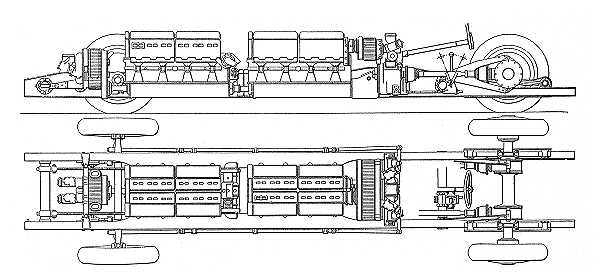
The general arrangement of the Silver Bullet. From The
Automobile Engineer, June 1930.
|
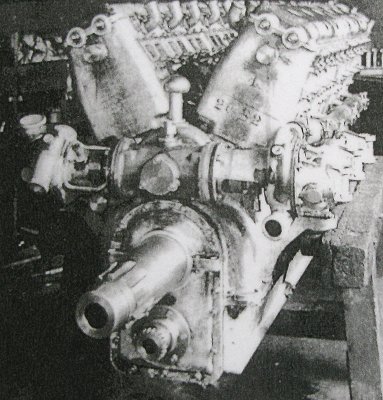
One of the engines, showing the 50 degree V. |
The car was powered by two
specially designed 12 cylinder, 24litre lightweight engines, each capable of developing
490b.hp. at 2,400r.p.m.
Each V12 engine weighed less than 1,000lbs and
had an angle of only 50 degrees for the V to keep the engine as
compact as possible.
The front engine drove the water and oil
pumps, and the rear engine drove the supercharger. They were
started by compressed air and cooled in a strange way.
The car had an ice tank which would be filled
with 5½cwt. of ice on each run. Water was pumped through each engine
block and re-circulated via the ice tank and a mixing tank. |
|
Pedal operated brakes were used and everything was
housed in a light aluminium body with an overall length of 30feet, a width of
just 3feet and a height of only 3feet 8inches.
The car weighed in at about 4½
tons. By mid November the engines and transmission had been fitted into the
chassis and tested at the works. |
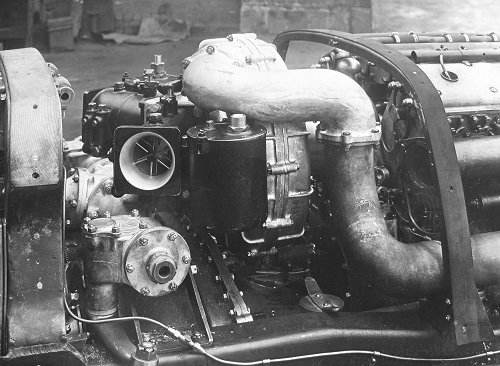
The supercharger and carburettors. |
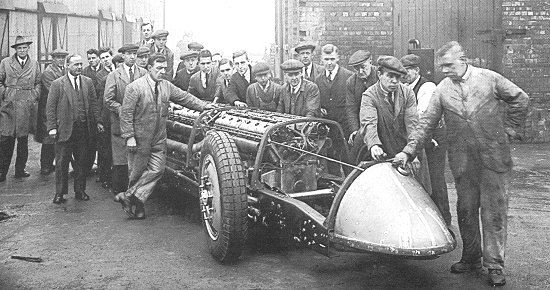 |
The complete chassis is wheeled around the
works. |
| Another view of the car at the works,
before the body was fitted. |
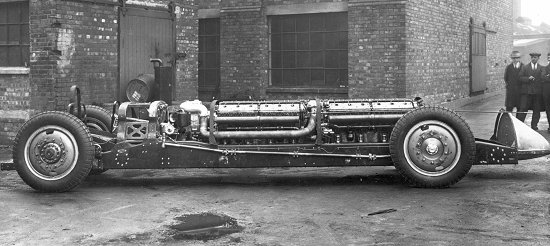 |
|
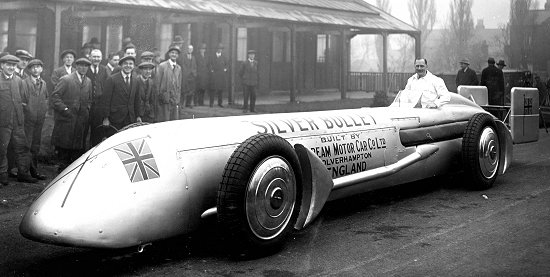
Kaye Don and the car at the works. |
The car’s first public appearance was at the
works during a reception given by Louis Coatalen and Kaye Don on 21st
February, 1930.
Those present included
C. B. Kay, the Production Manager, Hugh Rose, the designer, and many
of the men who built the car. |
| A rear view of the car showing the air
resistance brake between the tail fins. |
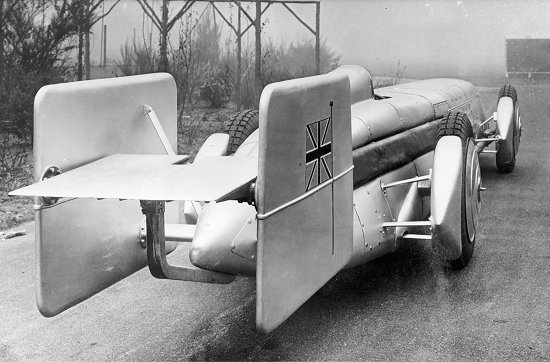 |
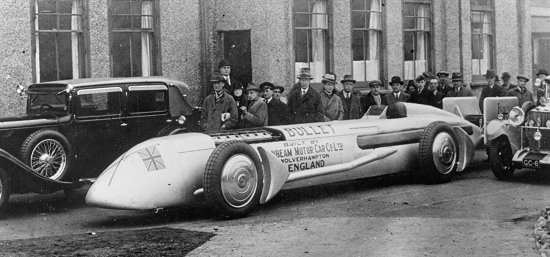 |
The car is shown to the press. |
| The Silver Bullet and some of the men who
built her. |
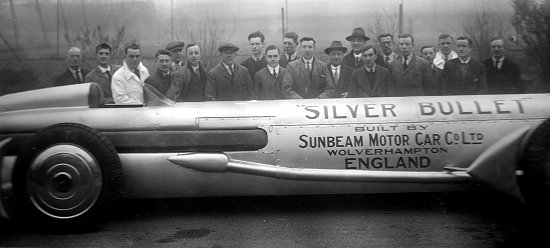 |
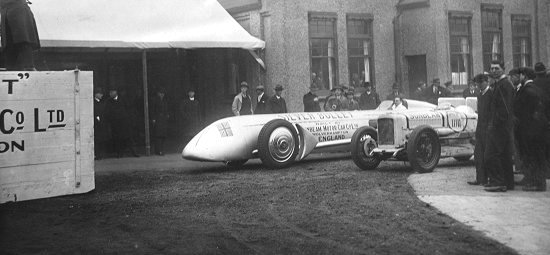 |
The final ceremony at the works before the
car is put into the enormous crate on the far left. |
|
On the 26th
February the car left Southampton, bound for New York.
On board the ship were
Kaye Don, his sister Mrs. Rita Livesey, Henry Wilding, who was in charge of the
car, and a team of 5 mechanics. |
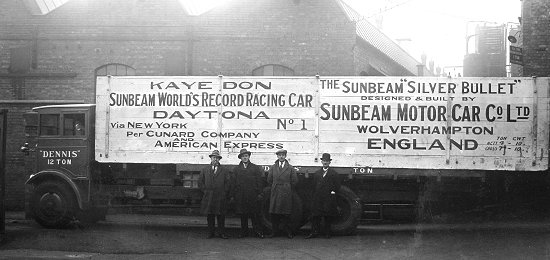
The crate is loaded onto the lorry to begin
its long journey. |
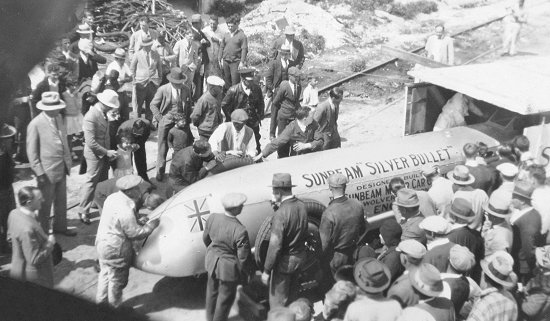 |
On its arrival at Daytona the car
attracted a lot of attention. |
| Kaye Don and the car on Daytona Beach. |
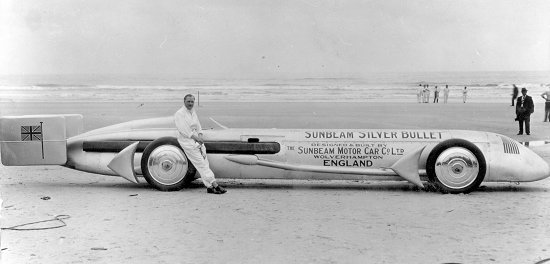 |
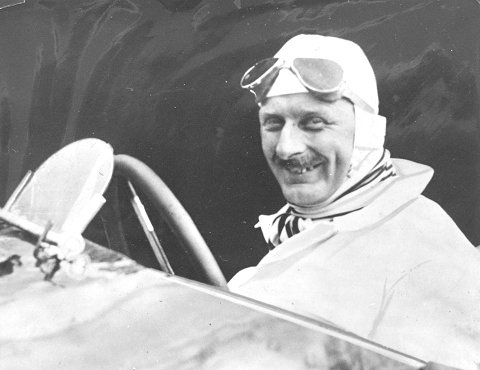 |
Kaye Don. |
| At speed on the beach. |
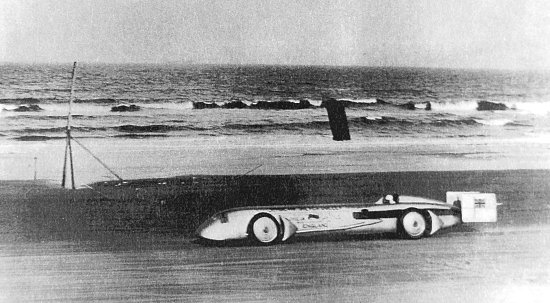 |
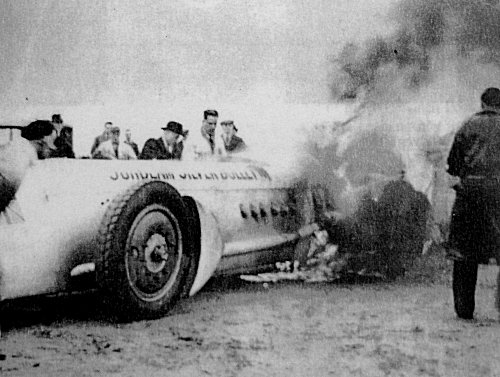 |
The Silver Bullet on fire. |
The car arrived at Daytona
on March 8th
and preparation work quickly got underway. Unfortunately there were too many
teething troubles including a fire problem, and after 18 unsuccessful runs and
much work on the car, the record attempt was abandoned. The team returned to the
UK on 22nd April, but all had not been lost as the car set an American record
for the flying 5 miles of 151.623m.p.h. on March 18th.
This was an end to
Sunbeam’s land speed record attempts. The “Silver Bullet” was sold to Jack
Field, a Southport hotelier and garage owner. He unsuccessfully attempted to
solve the car’s problems, and after much effort it was eventually scrapped.
|